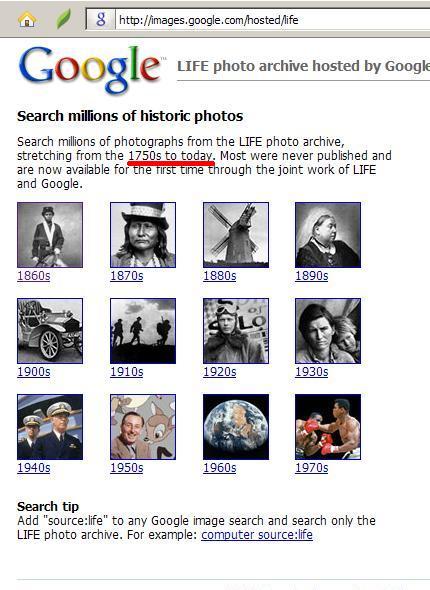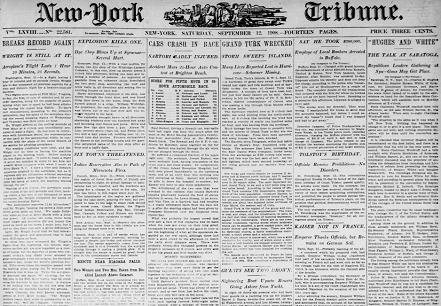There’s a pattern to much of the reporting on the financial crisis and the bailout. See if you can identify it.
From “Banking Regulator Played Advocate Over Enforcer” the Washington Post‘s report on the Office of Thrift Supervision:
1.
In 2004, the year that risky loans called option adjustable-rate mortgages took off, then-OTS director James Gilleran lauded the banks for their role in providing home loans.
…
Gilleran did not respond to multiple requests to be interviewed for this article.
2.
John Reich, who has been OTS director since 2005, and Polakoff, his deputy, were well positioned to have learned the lesson. At the time of Superior’s difficulties, Reich was one of the leaders of the Federal Deposit Insurance Corp. and Polakoff ran FDIC’s Chicago office. Indeed, Polakoff’s office recognized Superior’s problems before OTS and pushed for increased scrutiny of Superior’s bookkeeping.
In testimony before Congress in the fall of 2001, Reich listed what he considered the lessons of Superior’s failure. Among them, he said, “we must see to it that institutions engaging in risky lending . . . hold sufficient capital to protect against sudden insolvency.”
But instead of increasing oversight, OTS shrank dramatically over the next four years.
[To be fair, Polakoff must have agreed to be interviewed: he is quoted in the article.]
Concerns about the product were first raised in late 2005 by another federal regulator, the Office of the Comptroller of the Currency. The agency pushed other regulators to issue a joint proposal that lenders should make sure borrowers could afford their full monthly payments. “Too many consumers have been attracted to products by the seductive prospect of low minimum payments that delay the day of reckoning,” Comptroller of the Currency John C. Dugan said in a speech advocating the proposal.
OTS was hesitant to sign on, though it eventually did. Reich, the new director of OTS, warned against excessive intervention. He cautioned that the government should not interfere with lending by thrifts “who have demonstrated that they have the know-how to manage these products through all kinds of economic cycles.” Reich, through a spokesman, declined to be interviewed for this article.
3.
Countrywide Financial’s decision to reconstitute itself as a thrift and come under the OTS umbrella was a victory for Darryl W. Dochow, the OTS official in charge of new charters in the Western region, home to Washington Mutual, IndyMac and other large thrifts.
In the late 1980s, Dochow had been the chief career supervisor of the savings-and-loan industry, and federal investigators later concluded he played a key role in the collapse of Charles Keating’s Lincoln Savings and Loan by delaying and impeding proper oversight of that thrift’s operations.
Dochow was shunted aside in the aftermath and sent to the agency’s Seattle office. Several of his former colleagues and superiors say he eventually reestablished himself as a credible regulator and again rose in the organization. Dochow did not return a phone call requesting an interview, and OTS said he declined to give one.
4.
As early as 2005, Angelo R. Mozilo, then the chief executive of Countrywide, approached OTS about moving out from under the supervision of the Office of the Comptroller of the Currency, which regulates national commercial banks.
…
Mozilo declined to be interviewed for this article.
And from the New York Times report on Citigroup’s troubles:
1.
In September 2007, with Wall Street confronting a crisis caused by too many souring mortgages, Citigroup executives gathered in a wood-paneled library to assess their own well-being.
There, Citigroup’s chief executive, Charles O. Prince III, learned for the first time that the bank owned about $43 billion in mortgage-related assets. He asked Thomas G. Maheras, who oversaw trading at the bank, whether everything was O.K.
…
The bank’s downfall was years in the making and involved many in its hierarchy, particularly Mr. Prince and Robert E. Rubin, an influential director and senior adviser.
…
Mr. Prince and Mr. Rubin both declined to comment for this article.
2.
David C. Bushnell was the senior risk officer who, with help from his staff, was supposed to keep an eye on the bank’s bond trading business and its multibillion-dollar portfolio of mortgage-backed securities. Those activities were part of what the bank called its fixed-income business, which Mr. Maheras supervised.
One of Mr. Maheras’s trusted deputies, Randolph H. Barker, helped oversee the huge build-up in mortgage-related securities at Citigroup. But Mr. Bushnell, Mr. Maheras and Mr. Barker were all old friends, having climbed the bank’s corporate ladder together.
…
Mr. Bushnell and Mr. Barker did not return repeated phone calls seeking comment. Mr. Maheras declined to comment.
These are the most recent examples I’ve seen; I’m sure there are more out there.

